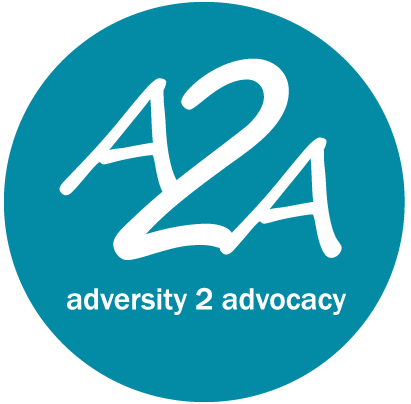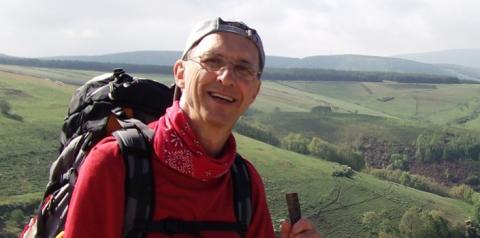Denis Asselin
Adversity: Lost Son, Nathaniel, who battled severe Body Dysmorphic Disorder
Advocacy: Walked more than 500 miles, raising awareness about BDD
“I felt as if walking was a way of pushing out the energy in a positive way – using the power of Nathaniel’s story to get the word out, to get brain disorders out of the shadows and break the code of secrecy.”
At age 11, Nathaniel Asselin began showing signs of Body Dysmorphic Disorder – a mental illness in which a person experiences extreme, obsessive misperceptions of flaws, minor or imagined, in their appearance. Early on, Nathaniel’s parents couldn’t put a name to the illness, but their son had his ups and downs, coupled with general anxieties. “By 2003, the real focus was on his facial appearance. He’d ask, ‘I have circles under my eyes, are they too dark, are the blemishes noticeable, does my hair look OK?’” Denis says. “A lot we could attribute to the self-consciousness of adolescence, but it was the frequency and duration of it.” An eventual diagnosis of BDD was followed by hospitalizations, drug therapies, homeopathic treatments and hypnotherapy. “It got harder as his friends moved away, went off to college,” Denis says. “He used to say, ‘BDD is my only companion.’” In the winter of 2010, after a stay at the OCD Institute at McLean Hospital near Boston, there was improvement in Nathaniel’s condition. Always an A+ student, Nathaniel was committed to getting well. He took an EMT class, volunteered at a fire station, worked with a trainer and got a job as an assistant middle school cross-country coach. “We had seen this pattern of a man capable of amazing things when the brain didn’t get in his way,” Denis says. But tragically in 2011, Nathaniel died by suicide.
As a way of making “some sense of the senseless,” Denis began putting one foot in front of the other, figuratively and literally. He set out to walk from Philadelphia to Boston to share his son’s story and to raise awareness of BDD. His 525-mile trek included stops at places where Nathaniel was treated. “I just wanted to stop by and talk about Nathaniel and talk about his illness – what have we learned about the loss of his life, what are we going to learn?” Denis also vowed to share the story of Nathaniel and BDD with five strangers a day along his route. The response, he says, was overwhelming, and included donations of about $29,000 to the International OCD Foundation. Inspired by Denis’s initial pilgrimage in 2012, the International OCD Foundation launched the One Million Steps 4 OCD annual walk in Boston the following year. Soon thereafter, the number of walks spread to other American cities. However, the Boston OCD Walk remains the Foundation’s flagship walk event. In 2023, a decade later, the walks occurred in 36 cities in 22 states and in 6 global territories. This advocacy/community/ fundraiser has yielded $1.8 million since its inception. In 2024, it is Denis’s hope to create a new major fundraising initiative earmarked specifically for BDD Research Fund at IOCDF—“Walking with Nathaniel—Next Giant Steps Forward.”


